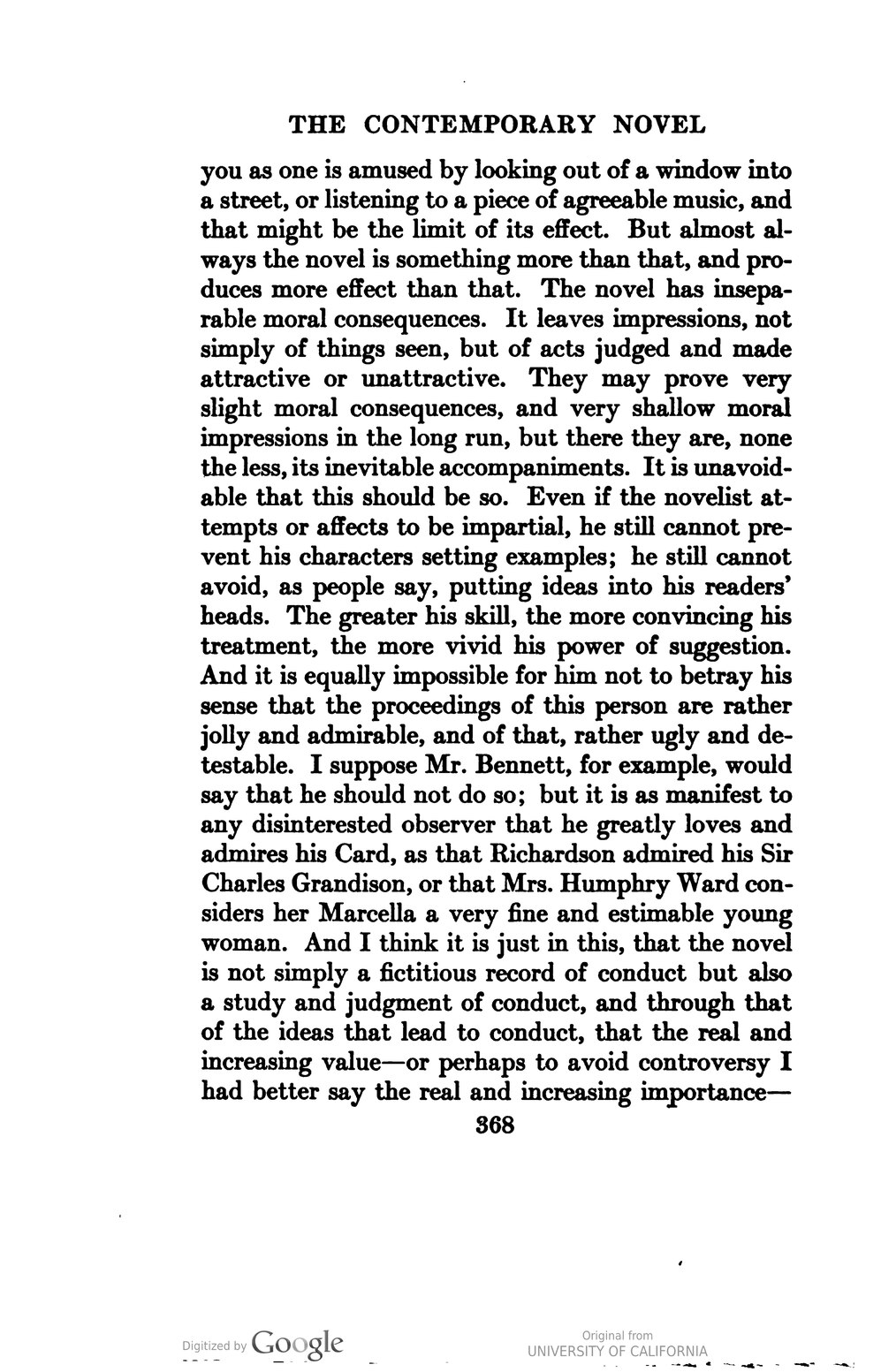THE CONTEMPORARY NOVEL
you as one is amused by looking out of a window into a street, or listening to a piece of agreeable music, and that might be the limit of its effect. But almost always the novel is something more than that, and produces more effect than that. The novel has inseparable moral consequences. It leaves impressions, not simply of things seen, but of acts judged and made attractive or unattractive. They may prove very slight moral consequences, and very shallow moral impressions in the long run, but there they are, none the less, its inevitable accompaniments. It is unavoidable that this should be so. Even if the novelist attempts or affects to be impartial, he still cannot prevent his characters setting examples; he still cannot avoid, as people say, putting ideas into his readers' heads. The greater his skill, the more convincing his treatment, the more vivid his power of suggestion. And it is equally impossible for him not to betray his sense that the proceedings of this person are rather jolly and admirable, and of that, rather ugly and detestable. I suppose Mr. Bennett, for example, would say that he should not do so; but it is as manifest to any disinterested observer that he greatly loves and admires his Card, as that Richardson admired his Sir Charles Grandison, or that Mrs. Humphry Ward considers her Marcella a very fine and estimable young woman. And I think it is just in this, that the novel is not simply a fictitious record of conduct but also a study and judgment of conduct, and through that of the ideas that lead to conduct, that the real and increasing value—or perhaps to avoid controversy I had better say the real and increasing importance—
368
